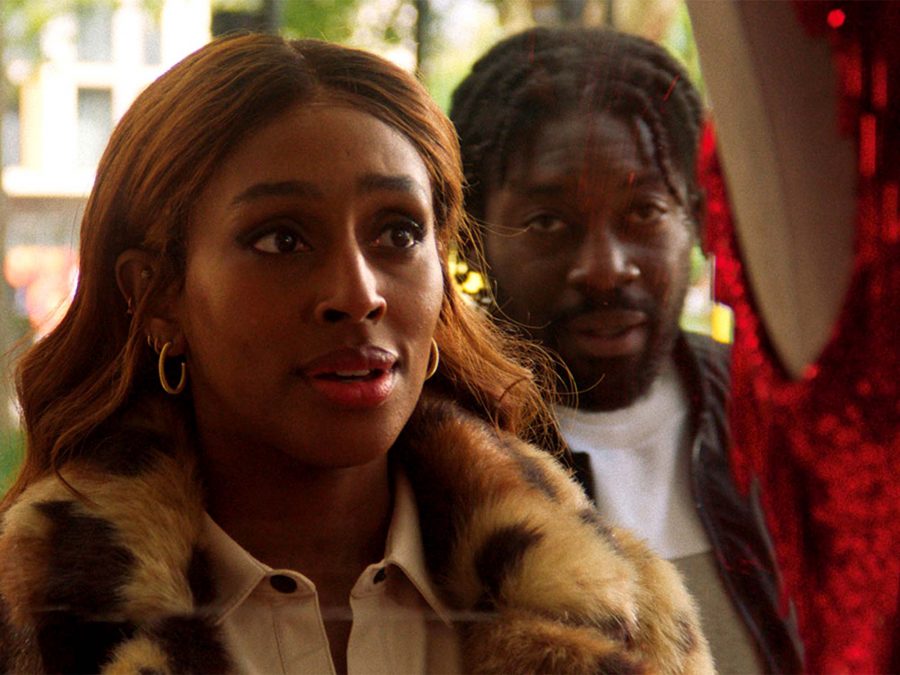Dionne Edwards' debut feature reconstructs the stereotypes of Black masculinity in a way that’s honest and unsentimental.
When it comes to the annals of visual culture, the roots of cross-dressing wend all the way back to classical stage farce, silent comedy and beyond. Debut writer/director Dionne Edwards softly tamps down rather than excises these formative influences with her film Pretty Red Dress, a compelling and original drama about Black ex-convict Travis (Natey Jones) who returns home to his wife and daughter having developed certain desires he doesn’t yet know how to deal with.
Old muckers on the street see Travis’ incarceration as a badge of honour, while his slick-willy brother uses it as psychological leverage, opting to help Travis reintegrate into society, but on his own demeaning terms. Meanwhile, Travis’ wife Candice (Alexandra Burke) is in the process of auditioning for a role in a Tina Turner-themed musical, which requires her to repeatedly step into the guise of the R&B superstar, which she does with the help of a vintage red sequined mini dress.
Latchkey daughter Kenisha (Temilola Olatunbosun) attempts to put a brave face on her situation, which includes unpicking her own sexuality, and the fact that she spots her dad trying on the red dress, replete with thick make-up and babydoll wig.

Pop star Burke makes a natural transition from the world of music to film and does well to essay Candice’s conflicted response to her husband’s attempts as naked self-expression. There are occasional lapses into soap opera histrionics, and some of Edwards’ dialogue works too hard to contrive a bigger conflict by unduly underscoring Candice’s ignorance.
But for the most part Burke dives into what is a complex and not entirely sympathetic character. By contrast, Jones is all coiled intensity and masked anxiety, as he knows that this thing that gives him the pleasure of release could potentially implode his already-dysfunctional little family unit.
It’s a film which dismantles and reconstructs the stereotypes of Black masculinity in a manner that’s both unsentimental and honest. There are no trite assurances that people will accept you for who you are; instead it suggests that the onus is on you to forge a new path if you want to make these lifestyle choices work.
It’s a bold first effort, but not one without its rough edges: the camerawork and staging is often unnecessarily showy, with important dialogue exchanges muffled by a camera which spins around the actors. And there’s also a noticeable impulse for overstatement, where scenes drag on long past the point where they’ve served their function. Yet there’s something enervating about the emotions on display, and Edwards is canny in the way she imbues a close-quarters, kitchen sink drama with moments of blissful happiness, humour, eroticism and release.
Little White Lies is committed to championing great movies and the talented people who make them.
Published 13 Jun 2023
This British debut feature arrives on the back of an impressive festival run.
It’s not a subtle film, but it’s one that examines its subject matter with great heart and passion.
The fine performances are occasionally let down by bombastic script and direction.